Fume events: The toxic gases that may be harming aircrew and passengers
- Published
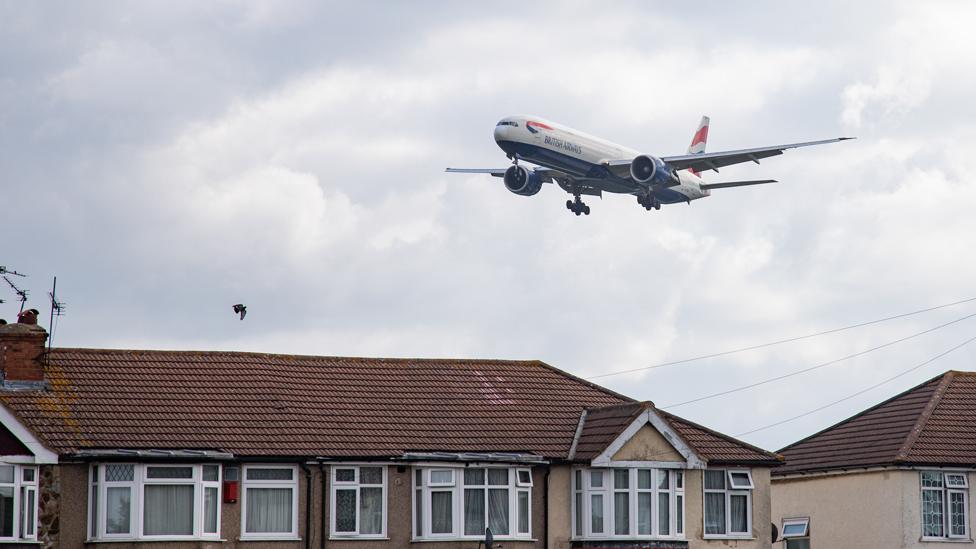
An incident in January, when a pilot became unresponsive at the controls of a plane coming in to land at Heathrow, is just the latest in a string of potentially dangerous "fume events" going back decades, reports the BBC's Mike Powell.
This year, 2020, was only hours old when a British Airways captain issued a Mayday emergency call to the control tower at London's Heathrow Airport.
Just minutes from landing BA633 from Athens on the evening of 2 January, his co-pilot - the first officer - had slumped at the controls. They were experiencing a "fume event", when toxic air enters the aircraft.
The BBC has seen the Air Safety Report (ASR) of that event. BA threatens staff with disciplinary action - or even the sack - if they reveal the contents of such confidential reports, but one of them has risked it, arguing that the truth needs to be known.
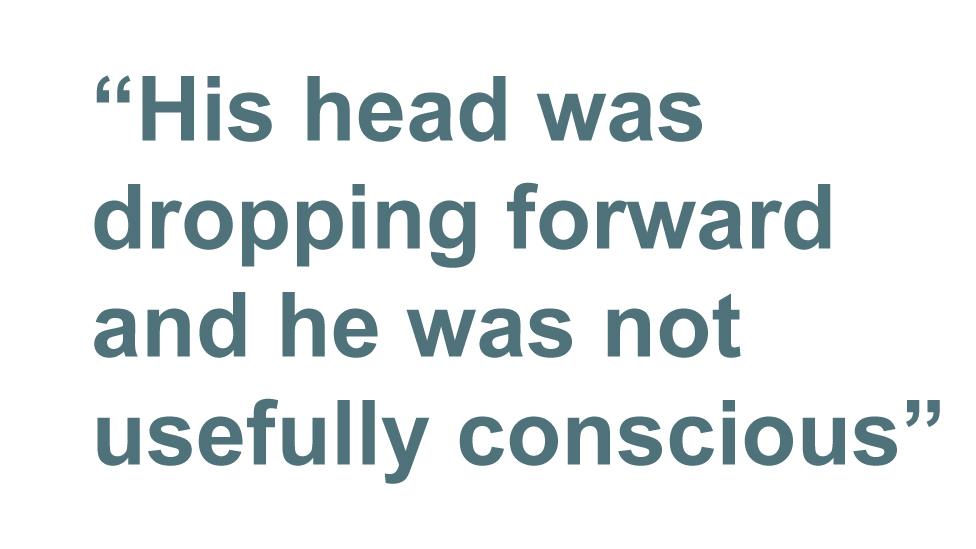
In the ASR the captain notes that he experienced strong smells and then became concerned that his co-pilot wasn't responding to questions and had started breathing rapidly.
"By this time his head was dropping forward and he was not really usefully conscious. Approximately seven miles to touchdown, I immediately donned my oxygen mask and stated that I had control. [I made] a quick assessment and decision to continue to land. P2 [Pilot 2] now fully unresponsive."
British Airways says: "It's not true that the first officer passed out, he was feeling unwell but neither of the pilots in the cockpit say he fainted." But BA does admit there was a Mayday call, signalling the highest-level of emergency, and a "fume event" on board. The company also points out that all passengers disembarked safely and that the incident has been referred to the Air Accidents Investigation Branch.
No-one really knows how frequently such events occur, but the BBC has seen evidence that earlier this month another BA aircraft experienced a fume event, which again seriously affected the flight's first officer. It's alleged that the same aircraft was involved in two fume events in 2019, including one in which both pilots were affected - though not incapacitated.

Find out more

A veteran of the Air Accidents Investigation Branch estimates that fume events - of varying degrees of seriousness - happen at least twice a day worldwide. A study by the University of Kansas found that there were at least five a day in the United States alone. The cabin crew union BASSA says it happens on average once a day on BA flights. And the European Union's Aviation Safety Agency - or EASA - told the BBC there were more than 100 serious fume incidents within its remit in each of 2017 and 2018.
The events vary in type.
Sometimes there's smoke - as on BA 422 to Valencia in August 2019. Passenger Gayle Fitzpatrick, who shot the footage in the video below, says BA still hasn't told her what actually happened. BA says this is because it is awaiting the results of a Spanish air accident investigation.
Passenger Gayle Fitzpatrick: "There was a lot of smoke pouring into the plane"
Sometimes there's just an unpleasant smell. People describe it as "smelly socks", "wet dog", "ozone" or "nail varnish".
Sometimes only the crew are affected. Sometimes it's passengers too.
The air passengers and crew breathe on board in nearly all jet airliners is "bleed air" taken from the flow of air entering the engine and piped into the cabin. The fear is that it can become contaminated by toxic engine oil, containing chemicals called organophosphates.
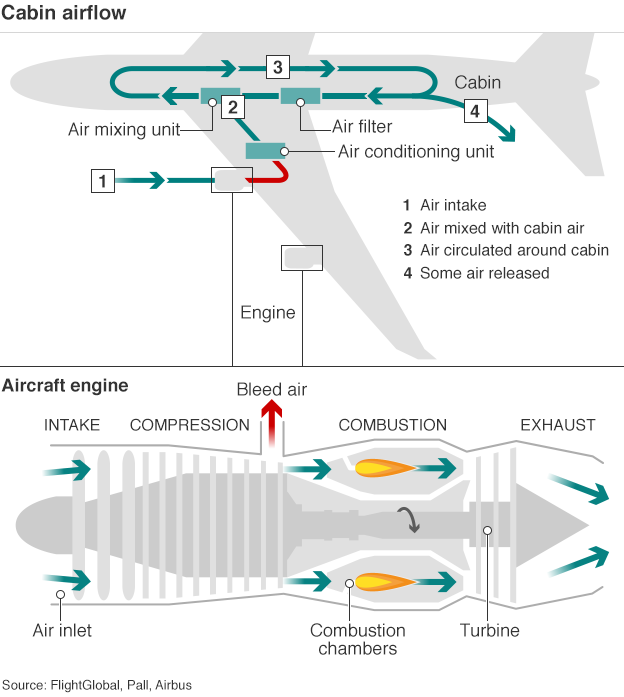
The airline industry is adamant there's no evidence that fume events do lasting harm. But people who work for airlines are increasingly worried that their health is being damaged, and are recording incidents on their own unofficial fume-event registers. There is still no central database worldwide for all airlines.
One worry is that if both pilots were affected by such an incident, a fume event could turn into a catastrophe. In 2016 another BA flight was flying to San Francisco when the pilots issued a PAN PAN emergency - one level down from a Mayday. The BBC has seen a confidential report from a member of the crew, in which he says there were reports of "dizziness, headaches, nausea, itchy red eyes, metallic taste, aggression and most worryingly forgetfulness and confusion, inability to think straight and converse normally".
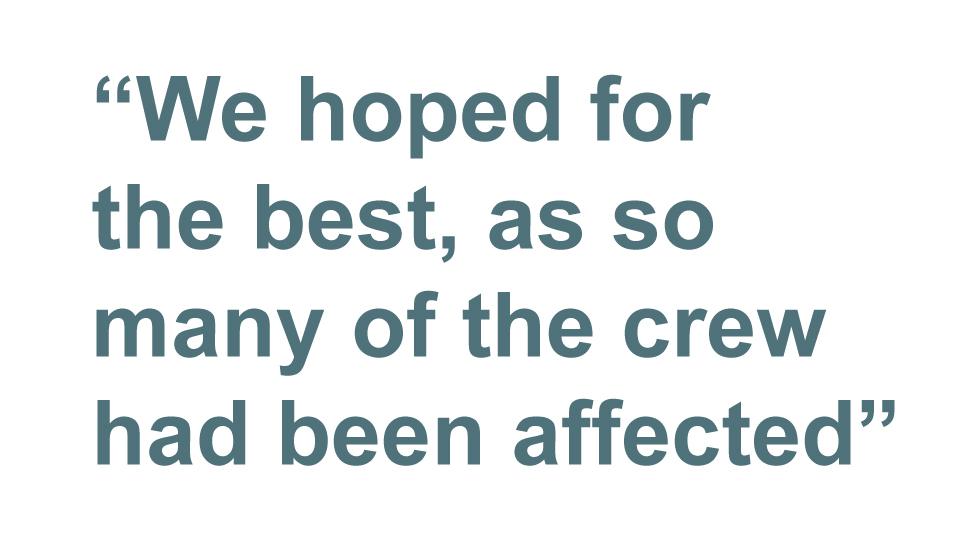
He goes on: "I myself experienced a moment of forgetfulness and an inability to get words out. Twelve crew were giving us cause for concern. Eight crew were on oxygen. We would 'lose' crew who would say they were going to the loo and then they'd be found at the other end of the aircraft - with them not knowing how they got there.
"Crew were found in corners with blankets over their heads and others 'stuffing food in their mouths while on oxygen'. Some seemed 'spaced out' and 'slow to respond'. It was discussed about crew being capable for (managing) doors for landing but we had little choice… and hoped for the best, as so many crew had been affected."
One of the crew on board during that PAN PAN emergency didn't want to be identified but told me that during the flight she had a euphoric type feeling, "a giddiness" as she puts it.
"I felt disorientated and had an acrid taste at the back of my throat - a bit like the overwhelming effect that you get when you enter a nail bar. My eyes were watering and stinging. The effects after that flight are more worrying. I am regularly out of breath and have a heavy feeling on my chest and night palpitations. I had a hacking cough which three courses of antibiotics wouldn't shift. My memory has declined. The problems with regular doctors (GPs) is that they don't have aviation medicine experience."
The parents of another BA crew member believe that their 34-year-old son died because of toxic air on the planes he flew in his 15-year flying career.
Charlie and Fiona Bass paid £7,000 to cover the costs of a second autopsy - and further tests - on their son Matt Bass, who died in 2014. They say that those tests found organophosphates in Matt's body. At his inquest, BA denied his death was linked to cabin fumes.
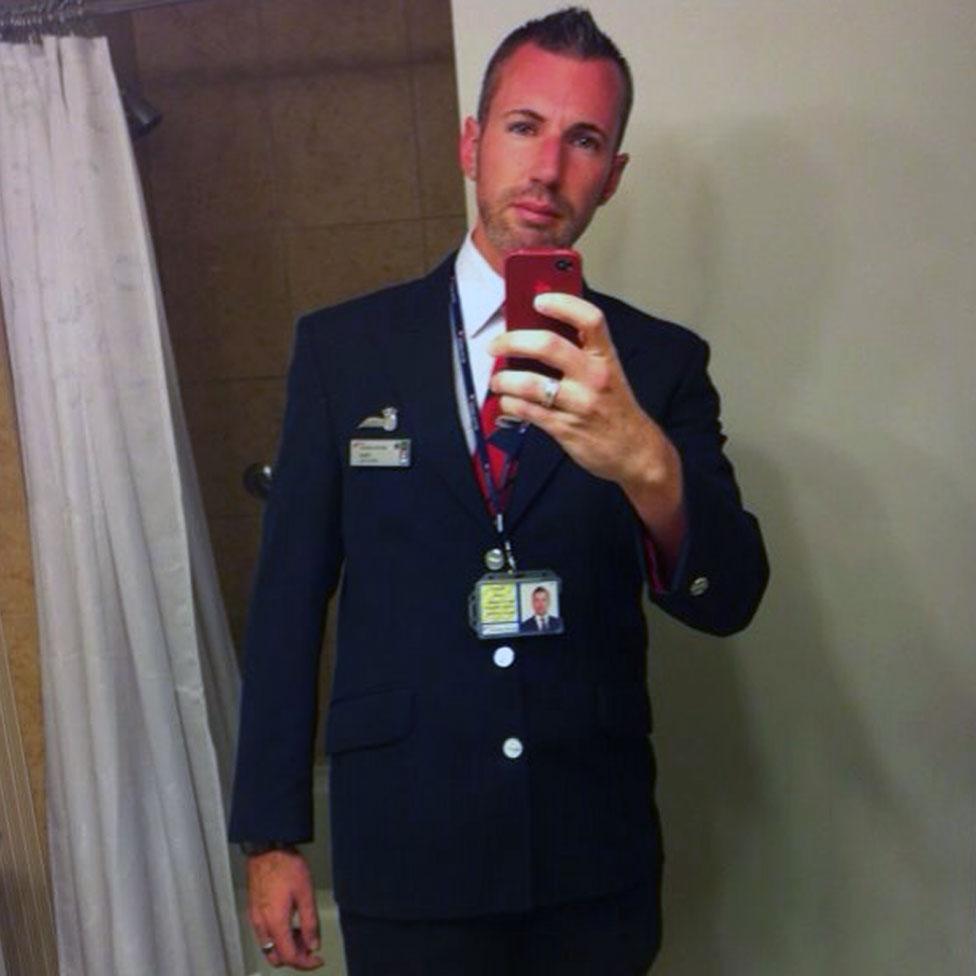
BA cabin crew member Matt Bass died in 2014
But Matt's local MP, Henry Smith, who represents a number of aircrew and pilots who fly out of Gatwick Airport, in his constituency of Crawley, West Sussex, told the BBC that he was concerned that there had been too many fume events, and too many resulting incidents of "aerotoxic syndrome" as it is sometimes called.
"I've had enough constituents come to me, one a suspected death as a result of aerotoxic syndrome and therefore I think it is incumbent on the airlines to ensure that they're not putting this aside as a minor issue but are properly investigating the health and safety of their staff and passengers," he said.
Matt Bass was the inspiration for Angel Fleet - a list of those airline staff who have died, compiled by ex crew leader Dee Passon. She told me that she's shocked by how many young people appear on the list. Two of them - Karen Lysakowska and Richard Westgate - were BA pilots, both in their early 40s, when they died.
Richard Westgate's post-mortem examination showed damage to his heart and nervous system, attributed by a coroner to an unintentional sleeping pill overdose. But his family says toxic cabin air could have been the cause. In 2015, the senior coroner of Dorset, Sheriff Payne, issued what's called a "Regulation 28 report" about the case to the Civil Aviation Authority (CAA) and British Airways. In it, he stated:
In my opinion there is a risk that future deaths will occur unless action is taken. Matters of Concern are as follows…
(1) That organo-phosphate compounds are present in aircraft cabin air.
(2) That the occupants of aircraft cabins are exposed to organo-phosphate compounds with consequential damage to their health.
(3) That impairment to the health of those controlling aircraft may lead to the death of occupants.
(4) There is no real time monitoring to detect such compounds in cabin air.
(5) That no account is taken of genetic variation in the human species, such as would render individuals tolerant or intolerant of the exposure.
He concluded that action should be taken. Three years after that guidance, the senior coroner of Berkshire, Heidi Connor, sent a "confidential letter of guidance" prompted by the inquest into the death of Matt Bass, to all coroners in England and Wales. The BBC has seen that confidential letter. It says that should coroners be faced with a death involving a relatively young person who's a frequent flier, who dies in unexplained or complex circumstances, they may wish to consider the need for further post mortem tests and the retention of samples.
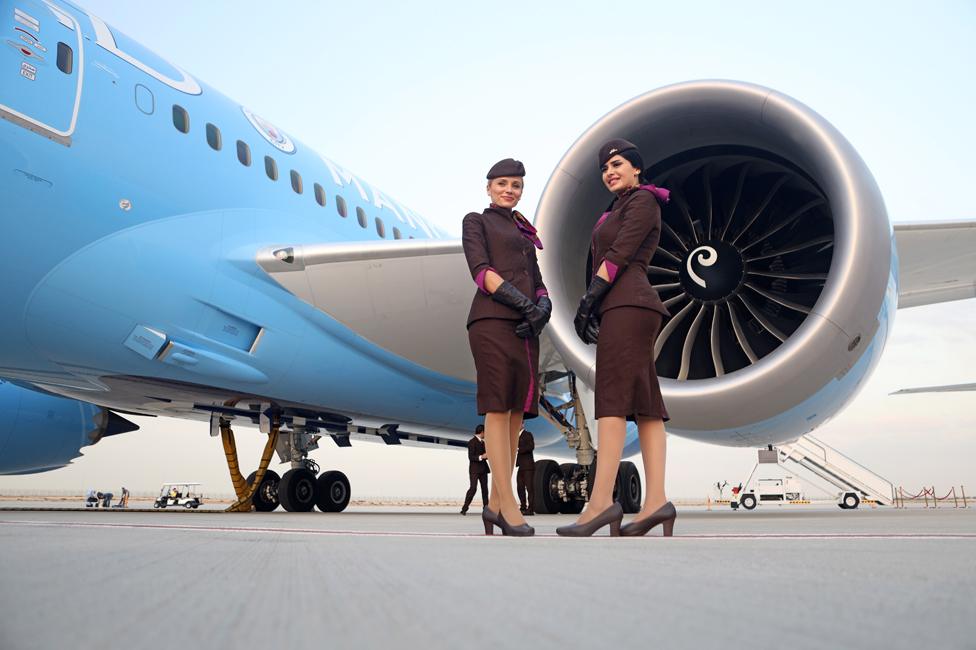
The Boeing Dreamliner does not take cabin air from the engine
While crew and their families blame illnesses and deaths on toxic air, there's no real way of monitoring fume events. In a search for a solution, Pall Aerospace is developing monitoring filters which EasyJet says it will trial later this year.
The Boeing 787 Dreamliner also uses a different system to provide cabin air - not the conventional bleed air system - but Dai Whittingham who's CEO of the UK Flight Safety Committee says organophosphates have been detected on the Dreamliner too.
"The question I think becomes, 'How much is too much and is there a level of exposure at which people are being made ill?' And that's the type of research that now needs to be done," he says.
An ex-Concorde captain, Tristan Loraine, who was medically retired after his health deteriorated has made a film, Everybody Flies, which is going on general release in the UK next month and will be shown to congressmen and senators in the US. In it, Tristan is seen monitoring the air on board a number of planes - something that some frequent-fliers have also started doing.
Everybody Flies: Is the air we breathe on planes contaminated with ultra-fine particles?
Attempts are being made to develop engine oil that is less toxic. It's also possible that electric aircraft engines will start coming on stream. But one expert I spoke to said it would most likely take 20 or 30 years for such engines to become available for commercial airliners carrying hundreds of passengers.
Meanwhile the patience of flight attendants and pilots, who have long been demanding action from the airline industry, has worn thin.
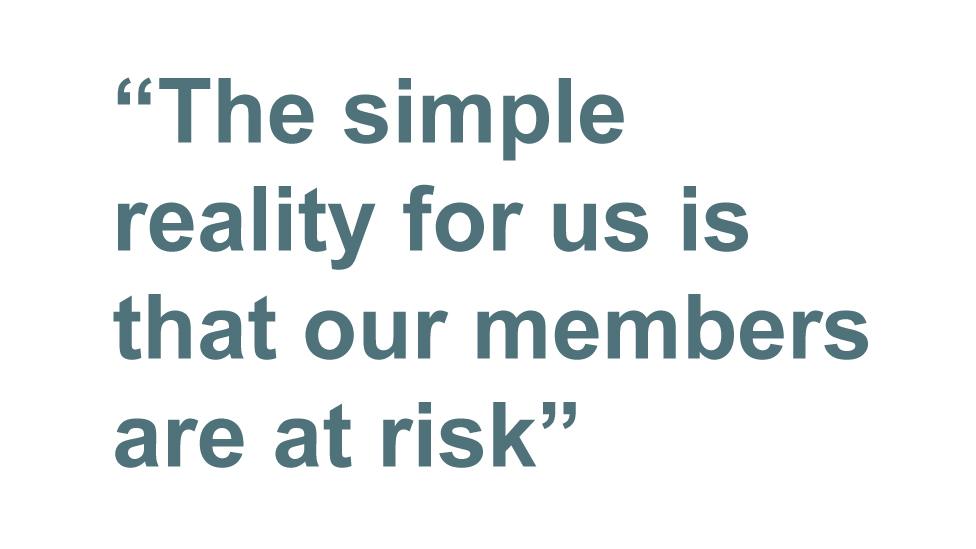
After years of gathering evidence, 10 lead cases against four UK airlines are due at the Royal Courts of Justice this year. Unite, the union behind the action, says it wants the public to know about the aviation industry's biggest secret. "An extraordinary amount of powerful evidence has been gathered," says General Secretary Howard Beckett.
"The simple reality for us is that our members are at risk from low-level exposure and it is a simple reality that frequent fliers will also be at risk as a result," he told me.
The BBC asked to interview British Airways, Easyjet, Lufthansa and Ryanair. No-one was available. It was the same with aircraft manufacturers Boeing, Airbus and Bombardier. Likewise the regulators, the CAA in the UK, EASA in Europe and the FAA in America. But they do collectively argue that cabin air is always safe - and that it would be wrong to conclude that any illnesses or deaths of those who work on airliners are a result of working or travelling in an aircraft.
The CAA did issue a statement, though.
"Our priority is always the safety of passengers and crew and we continue to work with airlines, manufacturers and international regulators to drive improvements in safety standards across the industry," it said.
"The overall conclusion of independent studies and evidence reviews is that there is no positive evidence of a link between exposure to contaminants in cabin air and possible acute and long-term health effects, although such a link cannot be excluded."
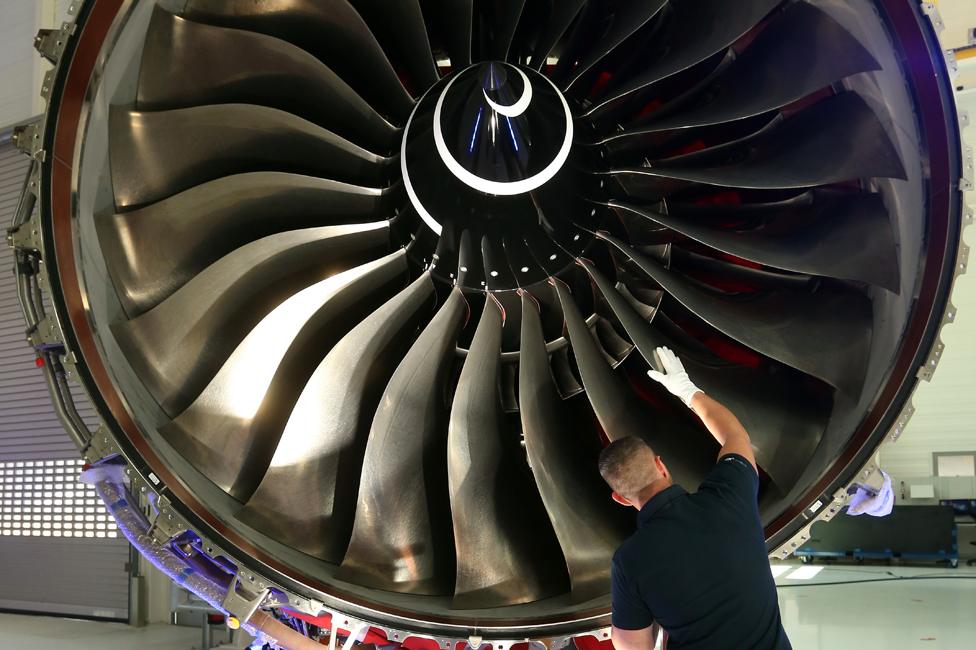
The industry says that testing fume events is tricky, because they're isolated and hard to predict. They point to European tests on 61 flights which suggest that cabin air is as good as or better than at home. EASA has been trying to replicate fume events on the ground in a laboratory.
British Airways also provided a statement.
"As a responsible employer, we always encourage our colleagues to tell us about any concerns, with reports passed onto the Civil Aviation Authority. Safety is our first priority and every report is thoroughly investigated, with typically 151 engineering checks before an aircraft is cleared," it said.
"Fume or odour events have been found to be caused by a wide range of issues, including burnt food in the oven, aerosols and e-cigarettes, and de-icing fluid. We would never operate an aircraft if we believed it posed any health or safety risk to our customers or crew."
EasyJet says: "EasyJet is a responsible employer and operates one of the world's most modern fleets and our aircraft are all fully compliant with the latest standards in terms of air quality and air conditioning.
"The health and wellbeing of our passengers and crew is EasyJet's highest priority."
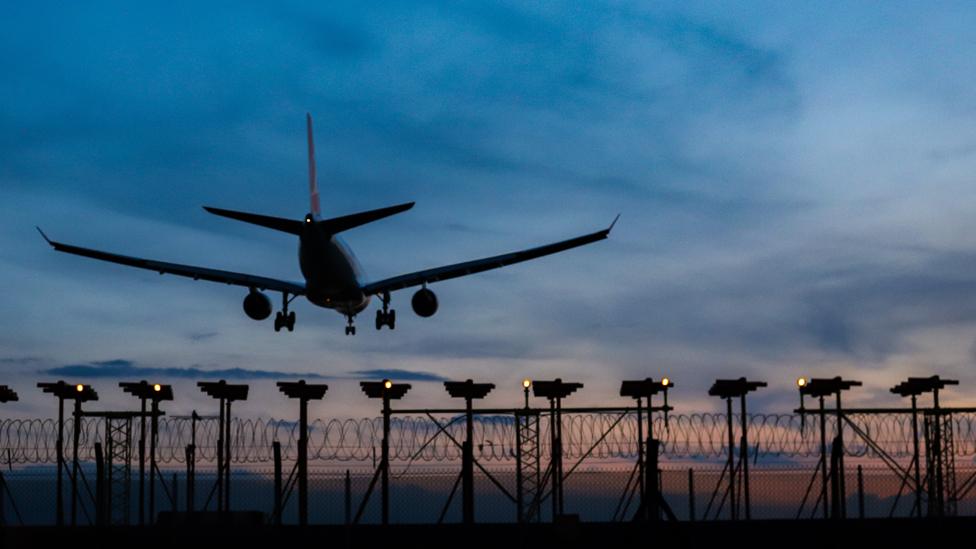
When I flew as air crew between 1988 and 1997, the world was a very different place. My colleagues and I had to work in cabins filled with thick clouds of cigarette smoke. Now, in another century, although cabins are tobacco-free, we've heard there could be something in the air that's for the most part unseen, but potentially very harmful.
While we await the outcome of numerous court cases and the results of further research and reports, the Air Accidents Investigation Branch says it plans to publish a report on fume events later this year.
Meanwhile Dee Passon, who compiles Angel Fleet, says that her list of dead crew members is growing.
And she adds: "I know it is affecting passengers as well - but most passengers aren't making the connection. When they do, then airlines are going to be forced to do something about this."
Listen to Mike Powell's File on Four documentary, Something in the Air?, on BBC Sounds